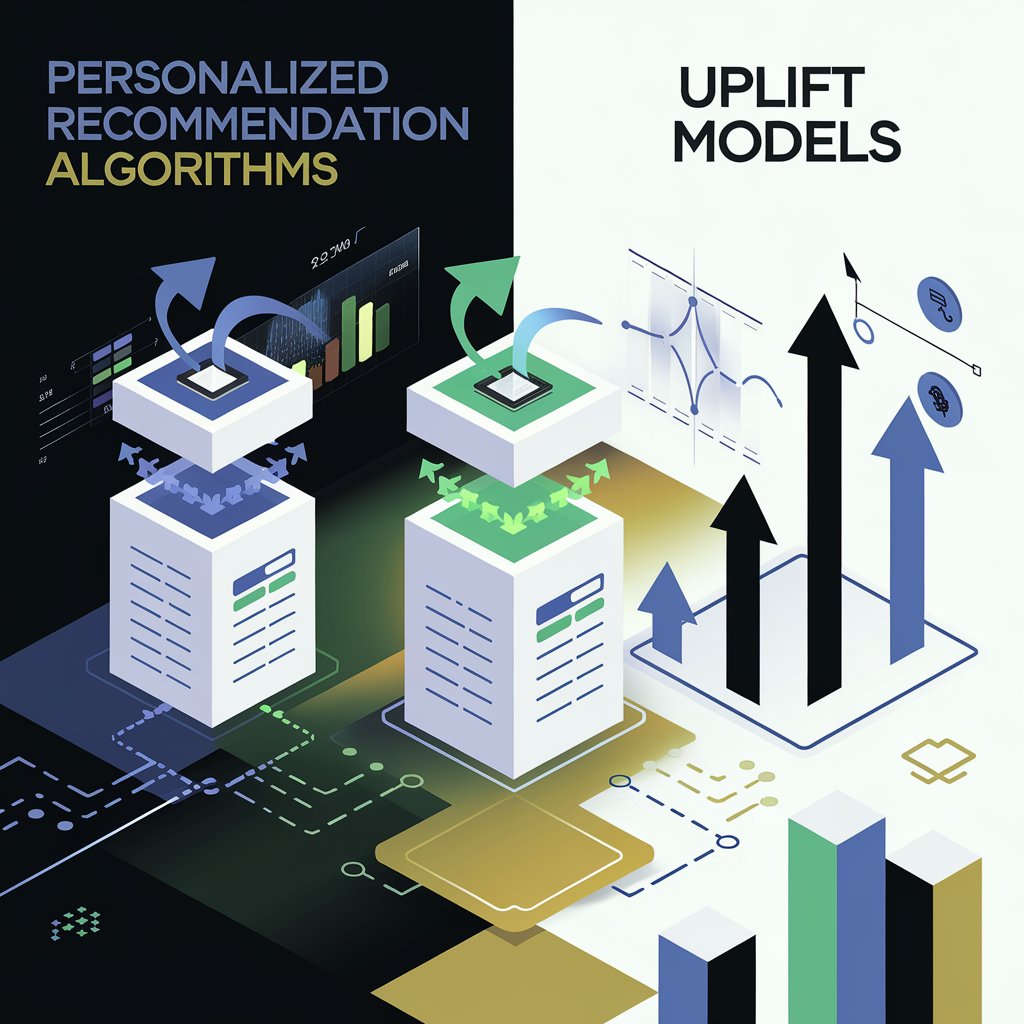Importance of Personalized Recommendations
In the realm of retail and e-commerce, the significance of personalized recommendation strategies cannot be overstated. Tailoring product suggestions and offers based on individual preferences and behaviors has a profound impact on both businesses and consumer engagement.
Impact of Personalization on Businesses
According to a study by Montetate, 75.5% of businesses are deriving positive Return on Investment (ROI) from personalization efforts across various industries, with figures in each industry exceeding 70% (BigCommerce). The ability to provide personalized experiences to customers translates into increased loyalty, higher conversion rates, and ultimately, improved revenue streams.
As the landscape of e-commerce continues to evolve, businesses that embrace personalization stand to gain a competitive edge. By leveraging machine learning techniques and sophisticated recommendation algorithms, companies can enhance customer satisfaction, foster brand loyalty, and drive repeat purchases.
Consumer Perception of Personalization
In a digital era where online spending is projected to exceed $476 billion by the end of 2024, consumers have come to expect tailored experiences from the brands they interact with (BigCommerce). Seventy-two percent of customers engage exclusively with personalized messages, emphasizing the importance of personalized content in fostering meaningful relationships and enhancing customer retention.
The demand for personalized experiences is further underscored by consumer behavior trends. Research indicates that 71% of consumers now anticipate personalized interactions with brands, with 76% expressing frustration when such experiences are lacking (BigCommerce). Additionally, a substantial 67% of smartphone users exhibit a preference for companies that customize information based on their location (BigCommerce).
Incorporating personalized recommendation strategies not only enhances the user experience but also enables businesses to forge deeper connections with their clientele. By leveraging data-driven insights and innovative technologies, companies can navigate the evolving landscape of retail, meet consumer expectations, and drive sustainable growth.
Benefits of Personalized Recommendations
As companies strive to engage their customers in a more personalized manner, the use of personalized recommendation strategies has become increasingly prevalent. These strategies offer a myriad of benefits, including decreasing shopping cart abandonment rates, increasing average order value (AOV), and ultimately boosting revenue through personalization.
Decreasing Shopping Cart Abandonment Rates
Personalized recommendations play a significant role in reducing shopping cart abandonment rates. In the realm of e-commerce, studies have shown that implementing personalized recommendations can decrease abandonment rates by 4.35%. By providing customers with tailored product suggestions based on their preferences and browsing history, companies can entice customers to complete their purchases, leading to a decrease in abandoned carts.
| Personalized Recommendation Strategy | Impact on Abandonment Rates (%) |
|---|---|
| Personalized Recommendations | -4.35% |
Increasing Average Order Value (AOV)
One of the key advantages of personalized recommendations is their ability to significantly increase the average order value (AOV). When customers engage with personalized product suggestions, the AOV can multiply by a remarkable 369% (BigCommerce). By presenting customers with relevant and enticing product recommendations, companies can encourage customers to explore additional items and make larger purchases.
| Engagement with Personalized Recommendations | Increase in AOV (%) |
|---|---|
| Single Recommendation Engagement | 369% increase |
Boosting Revenue Through Personalization
Incorporating personalized recommendations into marketing strategies can lead to a substantial boost in revenue for companies. Tailored product recommendations not only enhance the shopping experience for customers but also drive higher conversion rates and repeat purchases. Personalized marketing campaigns have been shown to yield better results compared to generic campaigns, as they encourage customers to make more purchases (Storyly).
By leveraging personalized recommendation algorithms and effectively implementing them across various touchpoints, companies can enhance customer engagement, increase customer loyalty, and ultimately drive revenue growth. The use of onsite recommendation widgets, recommendations on the cart/checkout page, and personalized marketing campaigns can all contribute to the overall success of a personalized recommendation strategy.
Strategies for Implementing Personalized Recommendations
To effectively implement personalized recommendation strategies, companies and data scientists can leverage advanced models and algorithms that cater to the unique needs and preferences of individual customers. Two prominent strategies for achieving this level of personalization are Two Tower Models, Uplift Models, and Matrix Factorization Algorithms.
Two Tower Models Overview
Two Tower Models, also known as Two-Tower Architecture, are a sophisticated approach in recommendation systems that aim to enhance the accuracy and efficiency of personalized recommendations. This architecture consists of two distinct towers: one tower processes user information, while the other processes item information. By integrating user and item features separately, a more comprehensive understanding of user-item interactions can be achieved.
The Two Tower Models enhance recommendation accuracy by capturing complex patterns and relationships between users and items. These models excel in handling large-scale data and providing real-time recommendations to users. By considering various user behaviors and preferences, companies can tailor their offers and campaigns more effectively, leading to higher customer engagement and satisfaction.
Uplift Models Explained
Uplift Models, also referred to as Persuasion Models or Net Lift Models, are designed to predict the incremental impact of personalized interventions on customer behavior. Unlike traditional recommendation systems that focus on predicting what customers may like, uplift models analyze the influence of targeted marketing strategies on customer decisions. These models differentiate between customers who are positively influenced by personalized recommendations and those who would have made the purchase regardless.
By leveraging uplift models, companies can optimize their marketing campaigns by targeting individuals who are most likely to respond positively to personalized recommendations. This targeted approach not only increases the effectiveness of marketing efforts but also helps in improving customer engagement and loyalty.
Utilizing Matrix Factorization Algorithms
Matrix factorization algorithms play a crucial role in modern recommendation systems by facilitating the computation of user-item preferences and similarities. By utilizing the alternating least squares (ALS) algorithm, matrix factorization calculates the similarity in user ratings or interactions to provide accurate recommendations in real-time.
One notable advancement in this field is the NVIDIA CuMF library, a CUDA-based matrix factorization tool that optimizes the ALS method to handle large-scale matrix factorization tasks efficiently on GPUs. This high-performance computing capability enables companies to process vast amounts of data quickly and generate personalized recommendations at scale, leading to improved customer satisfaction and engagement.
By incorporating Two Tower Models, Uplift Models, and Matrix Factorization Algorithms into their personalized recommendation strategies, companies can enhance the relevance and impact of their recommendations, ultimately driving customer engagement, loyalty, and revenue growth.
Enhancing User Experience with Personalized Recommendations
In the realm of personalized recommendations, enhancing user experience plays a pivotal role in driving customer engagement and loyalty. Leveraging advanced technologies and strategies is essential for providing tailored and valuable recommendations to users. This section will explore the use of deep learning recommender models, the significance of location-based personalization, and the impact of mobile personalization.
Leveraging Deep Learning Recommender Models
Deep learning recommender models, such as Neural Collaborative Filtering (NCF), Wide and Deep (W&D), and BERT, are revolutionizing the landscape of recommendation systems. These models utilize complex neural networks to analyze user behavior and preferences, enabling more accurate and personalized recommendations. According to NVIDIA, intelligent recommender systems deliver a remarkable 22.66% lift in conversion rates for web products on average.
Integrating deep learning models into recommendation systems allows companies to understand user interactions at a deeper level, leading to more precise product suggestions. By leveraging GPU-accelerated DL model portfolios, businesses can enhance the efficiency and effectiveness of their recommendation engines, ultimately enhancing user satisfaction and driving sales.
The Role of Location-Based Personalization
Location-based personalization has emerged as a powerful strategy for tailoring recommendations to individual users. With 67% of smartphone users expressing a preference for companies that customize information based on their location (BigCommerce), leveraging geolocation data can significantly enhance the relevance of recommendations. By considering a user’s location, businesses can recommend products or services that are contextually relevant and timely.
Implementing location-based personalization not only increases the likelihood of a purchase but also fosters a sense of connection and understanding between the user and the brand. By integrating geolocation data into recommendation algorithms, companies can deliver more engaging and targeted suggestions, thereby improving user experience and driving customer satisfaction.
Impact of Mobile Personalization
In today’s mobile-centric world, personalizing recommendations for mobile users is vital for maximizing engagement and conversions. Mobile personalization offers a unique opportunity to create customized experiences tailored to the preferences and behaviors of mobile shoppers. With the majority of consumers using their smartphones for online shopping, optimizing recommendations for mobile platforms is key to capturing their attention and driving conversions.
By leveraging user data gathered from mobile interactions, businesses can create personalized product recommendations that align with individual preferences and browsing history. Whether through email campaigns, Facebook Messenger recommendations, or in-app suggestions, mobile personalization allows companies to deliver targeted and relevant content to users on the go. As highlighted by Medium, email and Messenger campaigns that incorporate personalized recommendation strategies based on user behavior data have proven to be highly effective in driving engagement and sales.
Enhancing user experience with personalized recommendations through deep learning models, location-based personalization, and mobile optimization is fundamental in creating meaningful connections with customers and driving business growth. By understanding and implementing these strategies effectively, companies can build strong relationships with their audience, boost customer engagement, and achieve sustainable success in the digital landscape.
Challenges and Solutions in Personalized Recommendations
In the realm of personalized recommendations, companies often face challenges that impact their ability to effectively implement and leverage personalized strategies. Addressing these challenges is crucial for maximizing the impact of personalized recommendations on user engagement and conversion rates. Let’s delve into some common challenges and the solutions associated with personalized recommendations.
Overcoming Data Silos
One of the primary challenges in implementing personalized recommendations is the existence of data silos. Data silos occur when data is stored in isolated systems or departments, making it difficult to consolidate and analyze customer information comprehensively. This fragmentation hinders the ability to create unified customer profiles and generate accurate personalized recommendations.
To overcome data silos, companies can invest in data integration solutions that facilitate the seamless aggregation of data from various sources. By breaking down silos and centralizing customer data, organizations can gain a holistic view of customer behavior and preferences. This integrated approach enables more effective personalization strategies, leading to enhanced customer experiences and increased engagement.
Addressing Limited Technology Stacks
Another challenge that organizations encounter in the realm of personalized recommendations is limited technology stacks, which can restrict the implementation of advanced personalization algorithms. Inadequate technology infrastructure and outdated systems may impede the scalability and efficiency of personalized recommendation engines, limiting the ability to deliver tailored experiences to customers.
To address limited technology stacks, companies can explore modernizing their tech infrastructure by incorporating machine learning and AI capabilities for more sophisticated personalization efforts. By leveraging cutting-edge technologies, organizations can enhance the scalability and responsiveness of their recommendation systems, ultimately delivering more targeted and relevant suggestions to customers.
Achieving Successful Marketing Personalization
Ensuring the success of marketing personalization initiatives is a multifaceted challenge that requires a strategic approach and meticulous execution (Insider). Successful marketing personalization involves various essential steps, including data aggregation, smart segmentation, website and mobile app personalization, personalization across messaging channels, and customer journey orchestration.
To achieve successful marketing personalization, organizations must adopt a customer-centric mindset and prioritize understanding customer needs and preferences. By leveraging advanced analytics tools and customer data platforms, companies can create personalized marketing campaigns that resonate with individual consumers. Implementing a comprehensive personalization strategy across multiple touchpoints can drive higher engagement, better conversion rates, and foster long-term brand loyalty.
By recognizing and proactively addressing these challenges, organizations can optimize their personalized recommendation strategies and unlock the full potential of personalized marketing initiatives in enhancing customer engagement and driving business growth.
Future Trends in Personalized Recommendations
The landscape of personalized recommendations is constantly evolving, driven by cutting-edge technologies and innovative strategies. As companies and data scientists delve into the realm of personalized recommendation algorithms, they are at the forefront of exciting future trends that promise to revolutionize the way businesses engage with their customers. Let’s explore three key trends shaping the future of personalized recommendations.
AI-Driven Personalization Predictions
AI-powered recommendation systems are at the forefront of transforming how businesses engage with their customers. Leveraging the capabilities of artificial intelligence, companies can analyze vast amounts of data to understand customer preferences and behaviors better. This enables them to deliver hyper-personalized recommendations that cater to individual needs and preferences.
With advancements in machine learning techniques and algorithms, AI-driven personalization predictions are becoming more accurate and efficient. By incorporating deep learning models such as auto-encoders, convolutional neural networks, memory networks, and attention mechanisms, businesses can enhance their recommendation systems’ representation learning capability (Microsoft Research Lab – Asia).
Deep Learning Advancements in Recommendations
Deep learning has revolutionized the field of recommendation systems by offering advanced techniques for learning complex patterns and relationships within data. Deep learning-based recommendation algorithms have significantly improved representation learning capability, particularly in deep collaborative filtering. By combining traditional collaborative filtering models with deep learning architectures, businesses can achieve remarkable improvements in recommendation accuracy and user engagement.
Models like auto-encoders, convolutional neural networks, and attention mechanisms have been instrumental in enhancing the performance of recommendation systems. These deep learning advancements enable businesses to provide more personalized and relevant recommendations to their customers, ultimately enhancing the overall user experience.
Incorporating Reinforcement Learning
Reinforcement learning is emerging as a powerful tool for optimizing long-term objectives in recommendation systems. By strategically interacting with users, reinforcement learning algorithms can adapt to evolving user behaviors and preferences. This form of learning helps uncover user characteristics and tailor recommendations to align with individual preferences, leading to enhanced user satisfaction and engagement.
Companies like Bing have successfully applied reinforcement learning in personalized news recommendation, showcasing the potential of this approach in enhancing user perception and personalization. The integration of reinforcement learning into recommendation systems highlights the industry’s commitment to leveraging cutting-edge technologies to deliver tailored and impactful recommendations.
As businesses embrace these future trends in personalized recommendations, they are poised to unlock new opportunities for customer engagement and loyalty. By harnessing the power of AI-driven personalization predictions, deep learning advancements, and reinforcement learning techniques, companies can create more meaningful and impactful interactions with their customers, driving growth and success in an increasingly competitive market.



